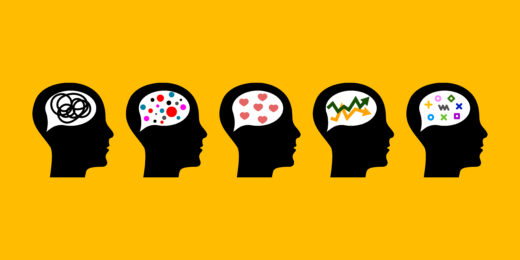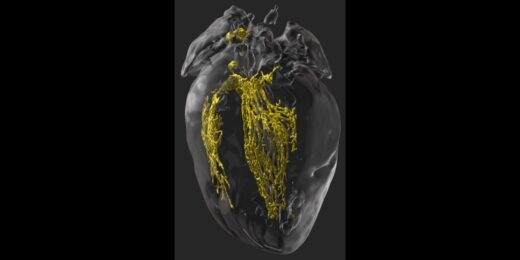Stanford Medicine's Zakia Rahman discusses skin cancer prevention and tips to have healthy skin in this Ask Me Anything.
Category: Patient Care
This Is My Why: Champions of Stanford Medicine hospitals
We're celebrating those who contribute to the success of Stanford Medicine's hospitals through unwavering passion and dedication.
Binge eating linked to habit circuitry in the brain
People with binge eating disorders have differences in their brains’ habit circuitry, which may explain why these behaviors are so persistent.
When it comes to health care, will AI be helpful or harmful?
Stanford Medicine researcher Jonathan Chen discusses the promise and danger of using AI, such as ChatGPT, in medicine.
What does it mean to be neurodiverse in medicine?
Stanford Medicine neurodiversity and autism expert Lawrence Fung discusses what it means to be neurodiverse in medicine.
Celebrating Asian Americans and Pacific Islanders at Stanford Medicine
Stanford Medicine celebrates and recognizes the contributions of the Asian American and Pacific Islander community.
AI helps gauge patients’ attitude toward cholesterol drugs
Stanford Medicine researchers are using AI to mine discussion on Reddit to better understand sentiments about statins.
Is AI up to snuff? Cardiac clinical trial points to yes
Stanford Medicine researchers studied how AI can enhance evaluation of cardiac tests in the clinic and found it improved accuracy.
How hypnosis can alter the brain’s perception of pain
Stanford Medicine physician David Spiegel, MD, explains how hypnosis can be effective against pain and why some people are more hypnotizable.
Caring for migrants at the border
Stanford Medicine student shares her motivations to advance health literacy and more equitable health outcomes for underserved populations.
Making the invisible visible to improve heart surgery outcomes
Scientists find a way in mice to illuminate the cardiac conduction system during surgery to prevent unintended damage to healthy tissue.
Researchers team with CDC to expand adult hepatitis B testing
New CDC recommendation for universal hepatitis B screening could significantly reduce liver cancer in Asians and Black people, researchers say.
Runaway immune reactions cause long COVID breathing problems
Researchers at Stanford Medicine have investigated the mechanism of pulmonary fibrosis caused by long COVID.
It’s hard to pinpoint where you got that food poisoning
In the U.S., the most common culprits causing gastrointestinal distress can linger in your gut for several days before you feel their effects.
Physicians get trained on gun safety
Researchers at Stanford Medicine and their colleagues created an educational guide for physicians about gun safety.
A network to support LGBTQ+ health
Researchers at Stanford Medicine are investigating how to best provide health care to the LBGTQ+ community.

















